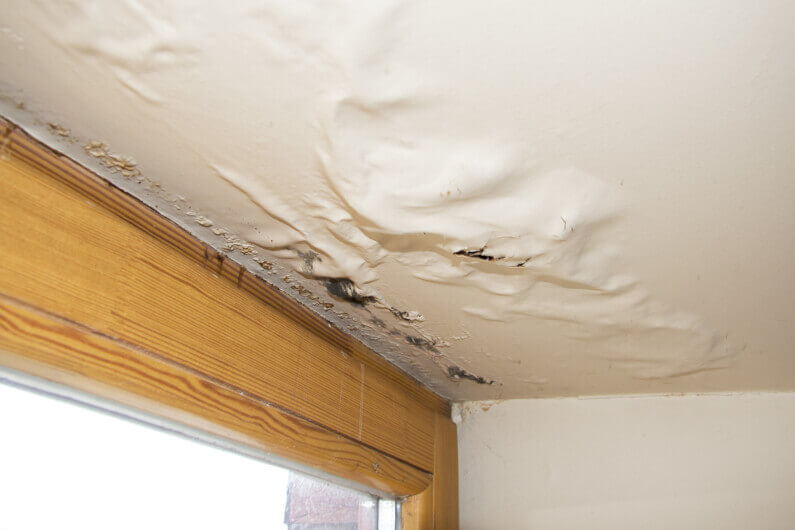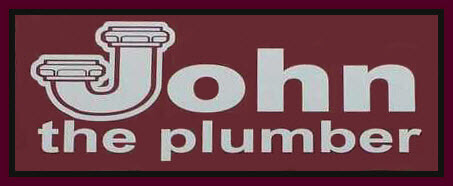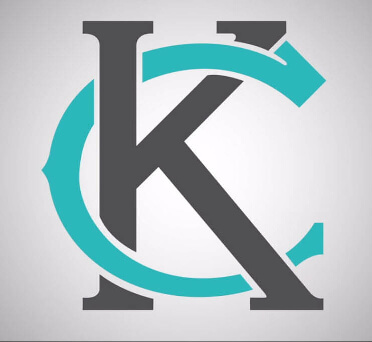John the Plumber's Blog
Plumbing Articles from Kansas City, MO & KS
5 Hacks for Detecting Water Leaks in Your Home

Water leaks are a homeowner’s worst nightmare.
Leaks go undetected and wreak havoc on a home’s structure. The longer the leak is ignored, the more damage it causes. American homeowners spend an average of $2,874 a year repairing water damages.
Water leaks can occur anywhere there is water. They stem from worn-down appliances, weak pipes, and large blockages. The problem with water leaks is sometimes they are often not easy to spot.
Homeowners need to be aware of the subtle signs of water leaks in houses. Let’s explore how water leaks form and hot to spot a leak before it damages your home.
What Causes Water Leaks?
Water leaks stem from a variety of sources. To detect a leak, you must be aware of what causes water leaks in the first place.
Blockages obstruct pipe and drain systems and lead to leaks. Tree roots and bad storms clog gutters and sewer lines, leading to widespread plumbing problems around your property.
Clogs also warp your pipes, causing corrosion. Corroded pipes lose their durability and strength, making them prone to leaks.
Pipe joints are where pipes connect and are the weakest areas of the plumbing system. When the pipe joints weaken or deteriorate, leaks occur.
While a steaming hot shower with a steady stream of water feels fantastic, excessive water pressure strains pipes. Most pipes and faucets cannot withstand high levels of pressure, making them susceptible to leaks.
Broken seals also cause water leaks in houses. When appliances are installed, the seals are placed around water connectors. But as appliances age, so do the seals. Worn-down seals can lead to water leaks around your home.
How to Detect Water Leaks in Houses
Finding a water leak can be tricky, but there are tell-tale signs something isn’t right with your pipes. Let’s review five effective ways to check for water leaks.
1. Check Your Utility Bills
Homeowners should know what their average utility rates are. Paying attention to how much you’re paying for water allows you to detect leaks. While minor fluctuations in water bills are normal, steep increases in water usage signal that something isn’t right.
If you notice a massive increase in your monthly water bill, it’s a bad sign. Check your toilets, pipes, faucets, and walls for signs of water damage.
If you don’t detect anything out of the ordinary, contact a professional plumbing team. Sometimes the leaks are hidden below your foundation or deep in your plumbing system. Certified experts can use leak detection equipment and sewer cameras to determine the leak’s location.
2. Look for Water Stains and Pools
The trick to finding water leaks is by following simple clues. If you notice changes in your walls and flooring, a water leak may be to blame.
Water leaks in your walls alter your home’s appearance. They cause patches of discoloration and fade wall pain. Wallpaper may start to peel in certain spots. These are all signs of a water leak within your walls.
A foundation leak is more difficult to detect, but there are still signs of water damage you can observe. Leaking ducts create damp carpets and flooring throughout your house. You may also notice small water pools close to where the leaks are located.
3. Test Your Toilets
Toilets account for 30% of water usage in the average home. Check your toilets from time-to-time to ensure they are working properly.
Check your toilets using food coloring. Add a few droplets to your toilet tank. Wait 30 minutes without using or flushing your toilet.
If the toilet is working properly, you shouldn’t see any changes in your toilet bowl.
If the water in your toilet bowl changes color, you may have a worn-out flapper valve. This is the plug that falls against your toilet’s drain hole on the bottom of the tank. It holds in water until you flush. A broken valve can cause water leaks around your toilet.
4. Follow Your Nose
Hidden leaks may be invisible to the human eye, so you’ll have to rely on your other senses.
Leaks create water pools. Wet, damp, and moist areas create the perfect habitat for mold and mildew to thrive in. While the mold may be hidden within your walls or foundation, you can smell the foul odors bacteria creates.
If you notice musty smells near your plumbing, it’s a sign of a plumbing problem. You will notice the odor may get stronger around sinks and shower drains.
Mold and mildew often form in bathrooms that don’t have plumbing problems. So if you detect foul smells, first do some cleaning. If you continue to smell the mold after a thorough scrubbing, then it could be due to a water leak.
5. Check for Drain Flies
You may be used to fruit flies buzzing around your home. But identifying and detecting drain flies are key to detecting water leaks.
Drain flies are small insects, only about 1/8th of an inch long. Their bodies are covered in little hairs. If they are crushed, the flies leave behind a powdery smudge. Drain flies commonly breed in small puddles, sewers, and septic tanks.
Water pools and clogged pipes attract drain flies. They are a sign that something may not be right within your pipes. Check for drain flies buzzing around specific areas of your home. The area where the flies congregate could signal the location of a water leak.
Once the leak is detected and repaired, the drain flies should vanish. If you continue to find drain flies, rinse your drain with baking soda and white vinegar solution to sanitize the pipes.
Leaky Pipes? Call Your Local Experts
Spotting water leaks in houses can be tricky. If you suspect anything out of the ordinary, contact a professional plumbing team right away. Qualified experts use specialized equipment to detect, locate, and repair water leaks quickly. Ignoring leaks leads to widespread structural damage.
If you’re looking for professional plumbing services, you’re at the right place. Contact our team to learn about how we can help you.
Request Free Quote
Serving Kansas City, Overland Park, Independence, Shawnee, & Surrounding Area's
FREE ESTIMATES
john the plumber
Full Service Plumbing Kansas City, MO-KS
John the Plumber LLC
5963 Paseo Blvd.
Kansas City, MO 64110
(816) 708-2020
or Send Us an Email Here.
© 2017-2024 JohnthePlumberKansasCity.com
– All rights reserved. –
Information on this website may not be re-used without prior written consent from John the Plumber LLC.
HOURS & LICENSE INFO
Monday-Saturday: 8:00am to 8:00pm
Sunday: Closed Normal Appointments
Emergency Client Service Available
Kansas & Missouri Licensed, Bonded, Insured
Master Plumbing Contractor 204249





0 Comments